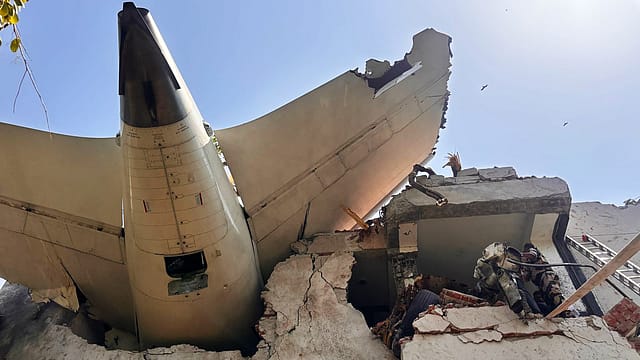Parliamentary panel flagged ‘modest’ funding of AAIB, the agency investigating AI-171 crash
ADVERTISEMENT

The Parliamentary Standing Committee on Transport, Tourism and Culture flagged "modest" funding of the Aircraft Accident Investigation Bureau in a report tabled in the Lok Sabha on March 25, 2025.
For the financial year 2025-26, the capital outlay for the Aircraft Accident Investigation Bureau (AAIB) stood at ₹20 crore, while budgetary support for the Bureau of Civil Aviation Security (BCAS) was ₹15 crore. “In view of the growing complexity of aviation security threats and the critical nature of accident investigations, the Committee finds these allocations relatively modest,” says the report presented in the Rajya Sabha by Sanjay Kumar Jha, chairman, Department-related Parliamentary Standing Committee on Transport, Tourism and Culture.
The committee observed that the capital outlay for 2025-26 has a distinct imbalance in the allocation of funds across key aviation bodies. The Directorate General of Civil Aviation (DGCA), entrusted with regulatory oversight, commands the largest share of ₹30 crore, nearly half of the total budget. “While its role in ensuring compliance standards is indisputable, the justification for such a significant allocation must be carefully examined to ensure efficiency and accountability. The discrepancy in funding raises important questions about the prioritisation of regulatory compliance over security infrastructure and accident investigation capabilities,” the report said.
While regulatory compliance remains essential, the rapid expansion of aviation infrastructure, with airports increasing from 74 in 2014 to 147 in 2022 and a target of 220 by 2024-25, necessitates proportional growth in security capabilities and accident investigation resources, said the report.
The Parliamentary Committee recommended the adoption of performance-based budgeting for aviation regulatory bodies, linking allocations to specific performance indicators and outcomes. “This approach would enhance accountability and ensure that funds are utilised efficiently to address the most pressing challenges within each domain. Regular performance audits should be conducted to assess the effectiveness of allocated resources and inform future budgeting decisions,” it said.
Following the fatal crash of Air India flight AI-171 in Ahmedabad, which killed all but one of the 242 people on board, a formal investigation was initiated by the Aircraft Accident Investigation Bureau (AAIB).
In April 2025, Union Minister of Civil Aviation Ram Mohan Naidu inaugurated the Digital Flight Data Recorder and Cockpit Voice Recorder (DFDR & CVR) Laboratory at the Aircraft Accident Investigation Bureau (AAIB) in New Delhi. Widely referred to as the ‘Black Box Lab’, this facility was established with an investment of ₹9 crore.
The new lab was touted to bring India a step closer to a safer aviation ecosystem by enabling the identification of root causes of incidents effectively and ensuring accountability, which remains the cornerstone of aviation safety. The Union minister had highlighted that only through effective and independent investigations can future accidents be prevented.
On Thursday, while issuing a clarification media reports that said that the black box from AI171 is being sent abroad for retrieval and analysis, the ministry of civil aviation said the decision regarding the location for decoding the flight recorders will be taken by the AAIB after due assessment of all technical, safety, and security considerations.